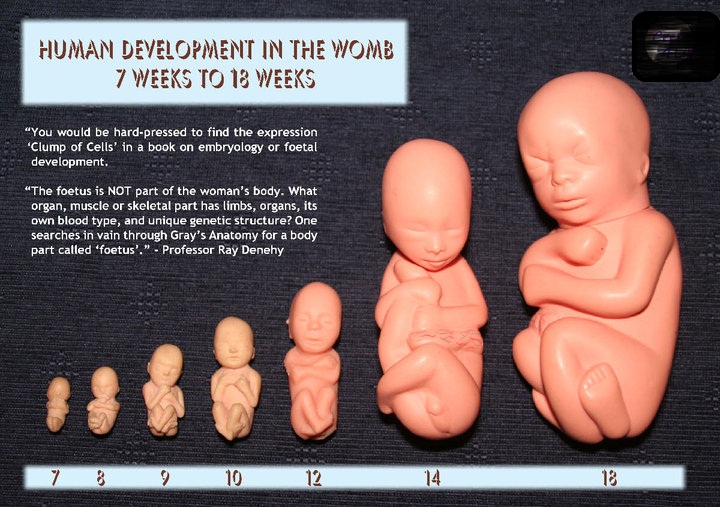If you have just discovered you are pregnant or you think you may be pregnant, then you are probably thinking about your options. You may be wondering how you will cope with pregnancy or how you will afford to support yourself and your unborn child. You may be encouraged to make a quick and uninformed decision on what choice you will make next.
 Anyone who is considering abortion but is experiencing doubts should definitely explore all options before following through with the termination of a pregnancy. The long term emotional impact of abortions can take a serious toll on the lives of women. While there are many organizations that favor legalized abortions, there are also a great number of groups that oppose this practice on moral grounds. It is important that any woman who feels uneasy about aborting the child seek help from a sympathetic counselor who will respect her doubts and not attempt to pressure her to follow through with a step that will have lifelong repercussions.
Anyone who is considering abortion but is experiencing doubts should definitely explore all options before following through with the termination of a pregnancy. The long term emotional impact of abortions can take a serious toll on the lives of women. While there are many organizations that favor legalized abortions, there are also a great number of groups that oppose this practice on moral grounds. It is important that any woman who feels uneasy about aborting the child seek help from a sympathetic counselor who will respect her doubts and not attempt to pressure her to follow through with a step that will have lifelong repercussions.
Pressure to sweep the problem under the rug by aborting the unplanned pregnancy can come from a variety of sources. Parents may be concerned about the stigma that is attached to a teenager’s pregnancy. The child’s father may also attempt to coerce the mother to abort the child. To force another person to submit to abortions is against the law. Any woman who is uncomfortable with the decision to abort should know that they do not have to submit to this procedure if they do not wish to. A responsible doctor will never pressure a patient into taking such a drastic step. In fact, a medical professional should take pains to make sure the the patient has been informed about what the procedure entails and that they have a choice in the matter. Any woman who is feeling pressured should make it plain that this is not how she wishes to handle the situation. It is also important to refuse to sign any documents that give consent to terminate the pregnancy. If the pressure that is being applied is financial there are organizations that offer abortion alternatives. These groups can help a woman find lodging, work, and other types of support that will enable the mother to carry the child to term.
Abortion is a surgical or medical procedure that puts an end to a pregnancy. It is performed by a licensed physician or surgeon. The reasons for abortion can include.
- not wanting to be pregnant (elective)
- the pregnancy endangers the woman’s health
- Indicators of serious abnormalities in the fetus (birth defects, etc.).
 In addition to the moral, ethical, religious, and personal debates about abortion, there are very definite legal and medical considerations:
In addition to the moral, ethical, religious, and personal debates about abortion, there are very definite legal and medical considerations:
- Elective abortion is not legal everywhere;
- Parental consent is required for minors in many jurisdictions;
- Abortion may not be medically recommended for some women, even early in the pregnancy;
- Abortion and the aftermath can result in a subsequent inability to carry a pregnancy to term;
- Abortion can result in secondary infertility;
- Abortion is generally undertaken during the very beginnings of a pregnancy, while many women are still unsure if they’re pregnant, undecided about their directions, or in denial about the pregnancy;
- Abortion can result in the woman’s death.
The actual procedures used in early stage abortion include:
- suction – a device that operates like a vacuum is used to extract the fetus, placenta, and other tissue;
- dilation and curretage – the fetus, placenta, and other tissue are cut and scraped out;
- dilation and extraction – the fetus is pulled out (in pieces) with forceps and the placenta and other tissue are removed.
- If you are considering abortion, please consult with a medical professional and a pregnancy options counselor. The medical aftermath of abortion can include severe pain, hemorrhage (bleeding), shock or coma, and even death. Emotional reactions can include severe depression and thoughts of suicide, feelings of guilt or worthlessness, and a dependency on drugs and/or alcohol.
- If you are feeling frightened, confused or overwhelmed, there are 24-hour telephone hotlines and phone numbers of contact information for crisis pregnancy in your state.
The number 1 alternative for abortion is preventing unwanted pregnancy in the first place. Not engaging in unprotected sex will eliminate almost all unwanted pregnancies. Of course, by the time most people look for abortion alternatives, the time for prevention has passed.
The so-called day after pill can help. Some people may still consider this abortion, but most people must see a major difference between aborting a fetus and hindering the conception process or even aborting a few mindless cells.

